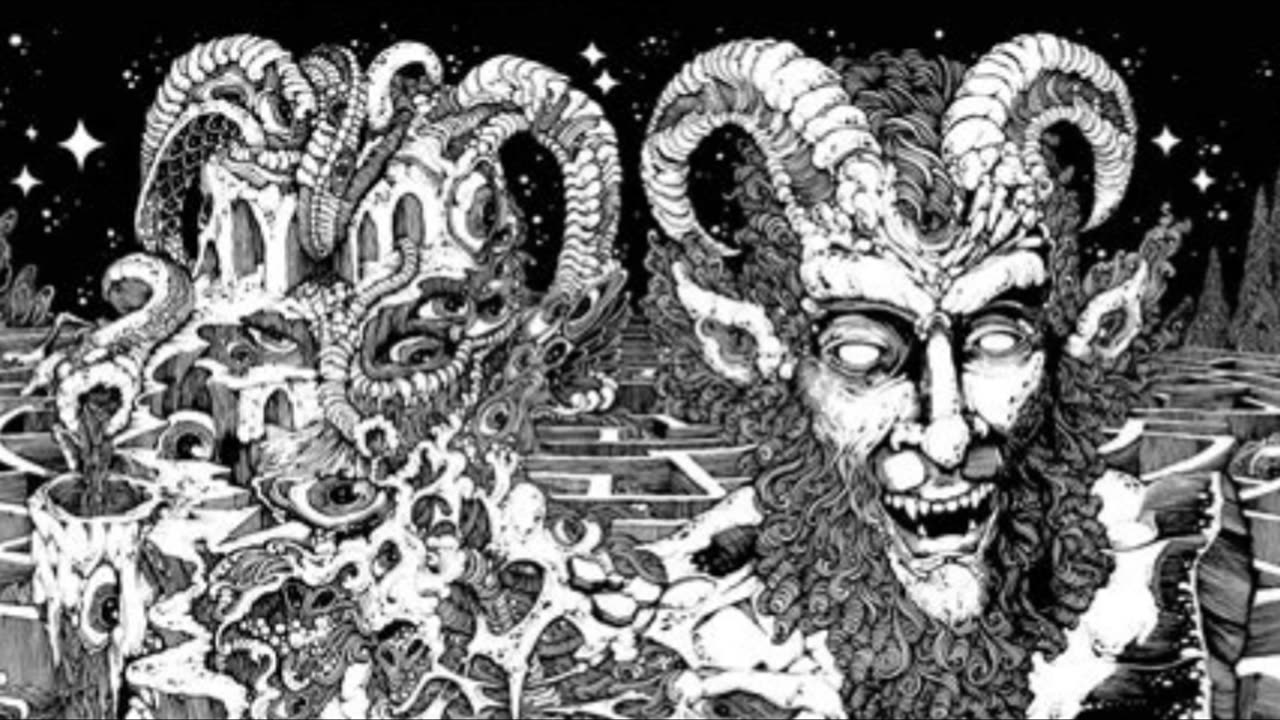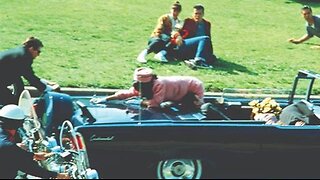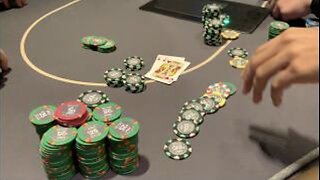Premium Only Content

The White People by Arthur Machen (Written 1899, Published 1904)
The White People is a short story written by Arthur Machen in 1899 and first published in 1904. It is widely considered one of his most haunting and symbolically rich works, deeply steeped in themes of occultism, mysticism, and hidden knowledge. The story is framed as a philosophical dialogue between two men (Ambrose and Cotgrave) who discuss the true nature of evil. Rather than defining evil in conventional moral terms, they propose that real evil lies in the misuse of sacred, spiritual truths. To illustrate this point, Ambrose shares a found manuscript written by a young girl, referred to only as “the green book.”
The bulk of the narrative is taken from this diary, which is written in an innocent, almost dreamlike tone. The young girl describes strange experiences that include mysterious rituals, unfamiliar words and names, secret gatherings, and vague references to "the dancing," “the Aklo letters,” and beings called “Dôls.” These accounts are never explained outright but evoke an atmosphere of secret pagan rites and arcane initiations. The girl herself does not fully comprehend the gravity of what she is participating in, which creates a chilling contrast between her naïveté and the dark spiritual forces that surround her.
At its core, the story is an exploration of esoteric initiation and the thin line between mystical enlightenment and spiritual peril. The girl’s journey mirrors that of an initiate into a hidden tradition, yet she is clearly unprepared and unguarded. This reflects Machen’s recurring concern with the danger of seeking divine or magical truths without reverence or proper preparation. Although the story contains no overt references to Freemasonry or Rosicrucianism, the structure and themes resonate with both traditions, particularly the idea of sacred knowledge kept veiled from the unworthy, the importance of symbolic language, and the concept of a spiritual journey fraught with hidden tests.
The White People is not a horror story in the modern sense. Rather than relying on jump scares or grotesque imagery, its power lies in its atmosphere, a lingering dread that arises from the suggestion of unseen powers and the corruption of the sacred. For readers interested in the occult, the story serves as a literary initiation of its own: a cautionary tale about what happens when one opens doors without knowing what lies behind them.
About the Author:
Arthur Machen (1863–1947) was a Welsh author, mystic, and journalist best known for his works of supernatural and occult fiction. Born Arthur Llewellyn Jones in Caerleon, Monmouthshire, Machen drew lifelong inspiration from the ancient myths, ruined Roman temples, and mist-shrouded hills of the Welsh countryside. Though raised in a devout Christian household, he developed an early fascination with alchemy, ceremonial magic, and the unseen forces beneath the fabric of reality, an obsession that would shape the core of his literary legacy.
Machen’s early life was steeped in classical literature, and he translated The Heptameron of Marguerite of Navarre before turning to fiction. His breakthrough came with The Great God Pan (1894), a tale of mystical transgression and hidden worlds that scandalized Victorian England with its implications of spiritual and sexual horror. This story, along with The White People and The Hill of Dreams, cemented his reputation as a master of the "weird tale" - stories in which spiritual dread and metaphysical unease replace conventional terror.
Although he was never a member of any formal esoteric order, Machen’s writings reveal a deep sympathy with the mystical worldview of groups like the Hermetic Order of the Golden Dawn, Rosicrucians, and initiatory societies such as Freemasonry. He believed that the mundane world was but a veil over the divine, and that beneath our ordinary senses lies a realm of beauty, terror, and transcendent truth. Many of his protagonists stumble upon this hidden realm.. often at great personal cost.
In his later years, Machen found a second wave of appreciation among literary figures like H.P. Lovecraft, who called him a “modern master of the grotesque.” Today, Machen’s works are studied not only for their literary merit but also for their contribution to Western esoteric thought. His stories remain potent gateways for those seeking the spiritual edge where myth, mysticism, and madness intertwine.
-
 5:42:50
5:42:50
Deus Meum Que Jus
3 days agoWilliam Cooper - HOTT - Kennedy Assasination & Kennedy Series - 11.22 - 11.30.95 (language warning)
601 -
 LIVE
LIVE
LFA TV
9 hours agoLIVE & BREAKING NEWS! | WEDNESDAY 11/26/25
6,159 watching -
 LIVE
LIVE
Crypto Power Hour
9 hours ago $2.99 earnedWhat You Need To Know About Gold Tokenization
1,609 watching -
 LIVE
LIVE
LIVE WITH CHRIS'WORLD
10 hours agoTHE WAKE UP CALL - 11/26/2025 - Episode 14
476 watching -
 2:16:19
2:16:19
The Bold Lib
13 hours agoBOLDCHAT: Trump Pardons | DOGE | Patel w/ANGELA BELCAMINO
4.07K5 -
 47:14
47:14
Brad Owen Poker
21 hours ago $0.03 earnedI Have STRAIGHT FLUSH vs Flopped NUTS!! ALL IN w GOLD BRACELET LEGEND!! $15,000+! Poker Vlog EP 358
2.96K -
 36:11
36:11
Uncommon Sense In Current Times
16 hours agoThe Truth About the Abortion Pill | Sue Liebel Exposes FDA Failures & Hidden Dangers
11.8K -
 LIVE
LIVE
BEK TV
22 hours agoTrent Loos in the Morning - 11/26/2025
188 watching -
 6:30
6:30
The Shannon Joy Show
12 hours agoMTG DIVORCES Herself From Trump & the MAGA Movement
5.27K10 -
 LIVE
LIVE
The Bubba Army
21 hours agoJELLY ROLL'S WIFE GOING TO JAIL! - Bubba the Love Sponge® Show | 11/26/25
2,039 watching